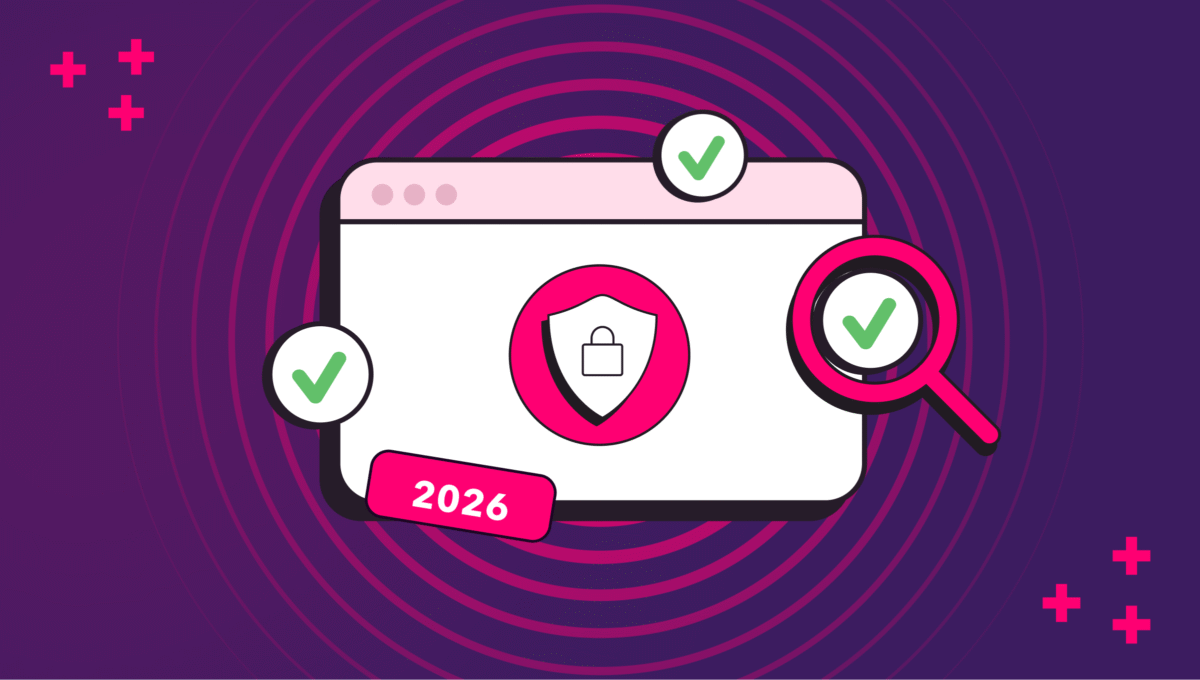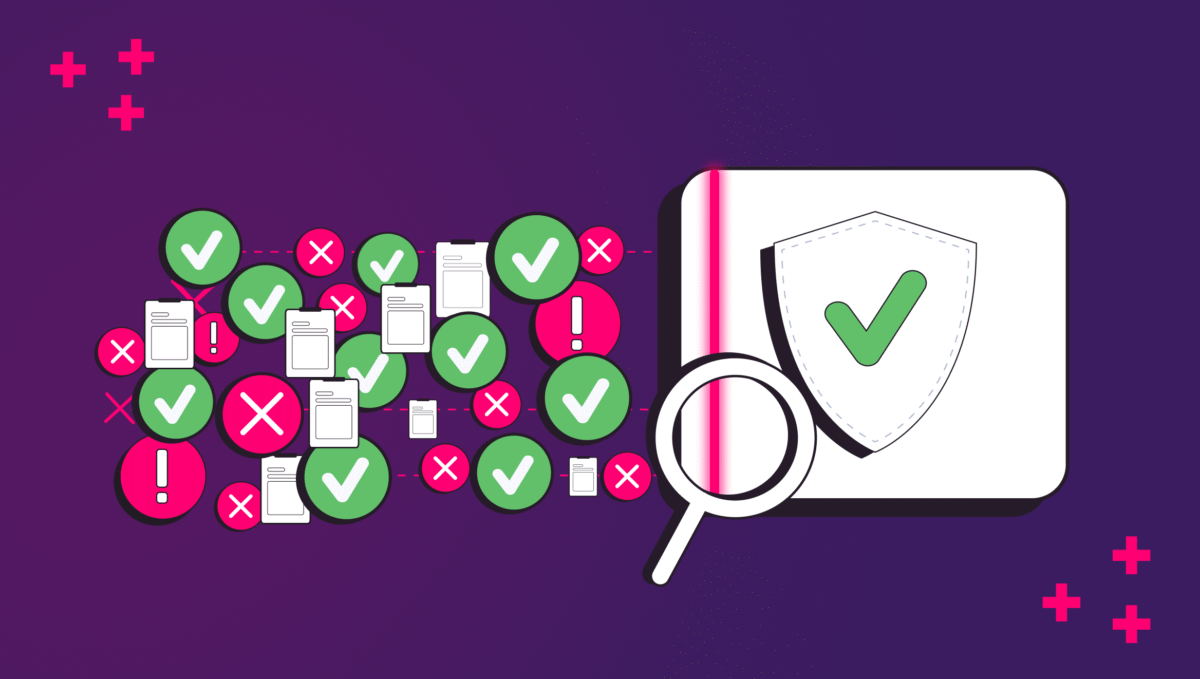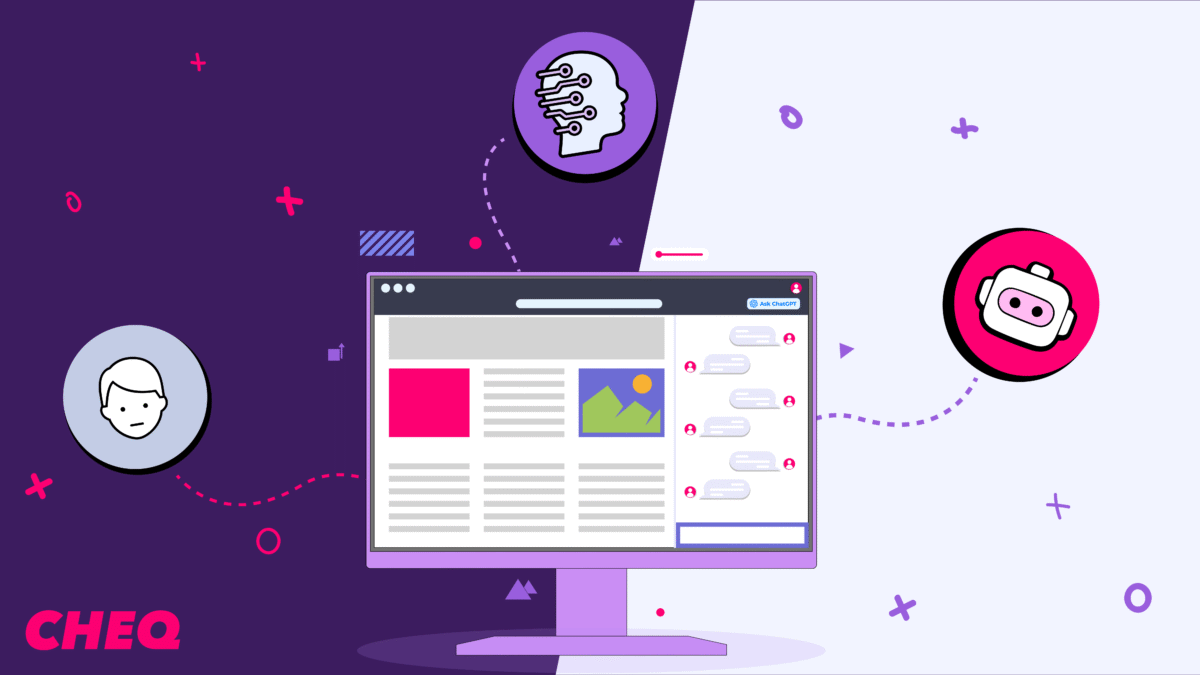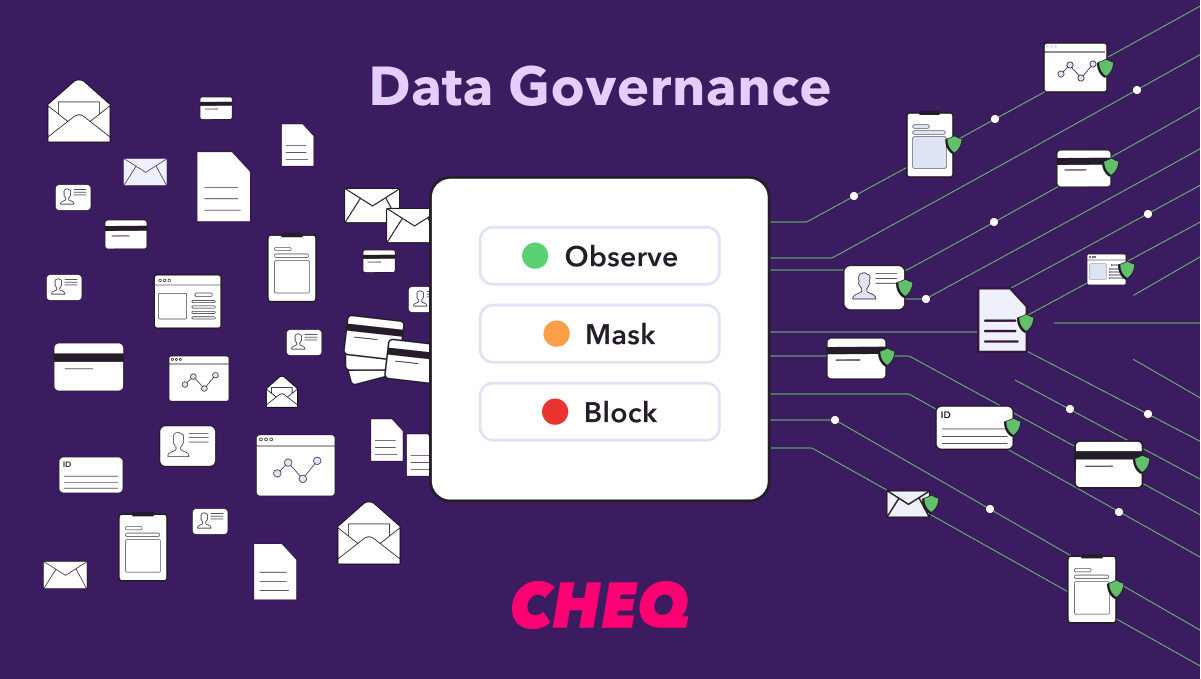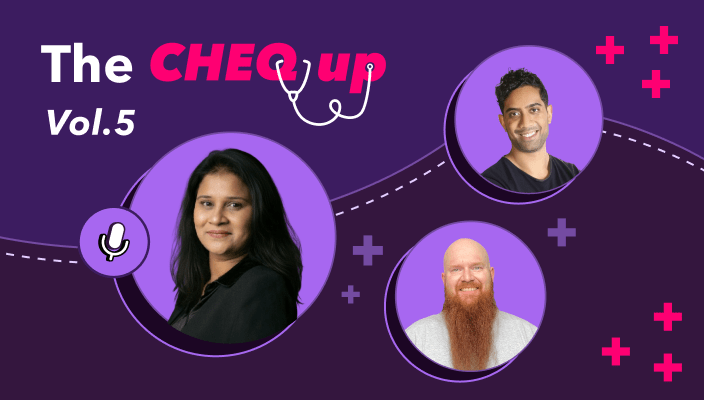The global growth of affiliate marketing in 9 countries
Jonathan Marciano
|Marketing | August 13, 2020
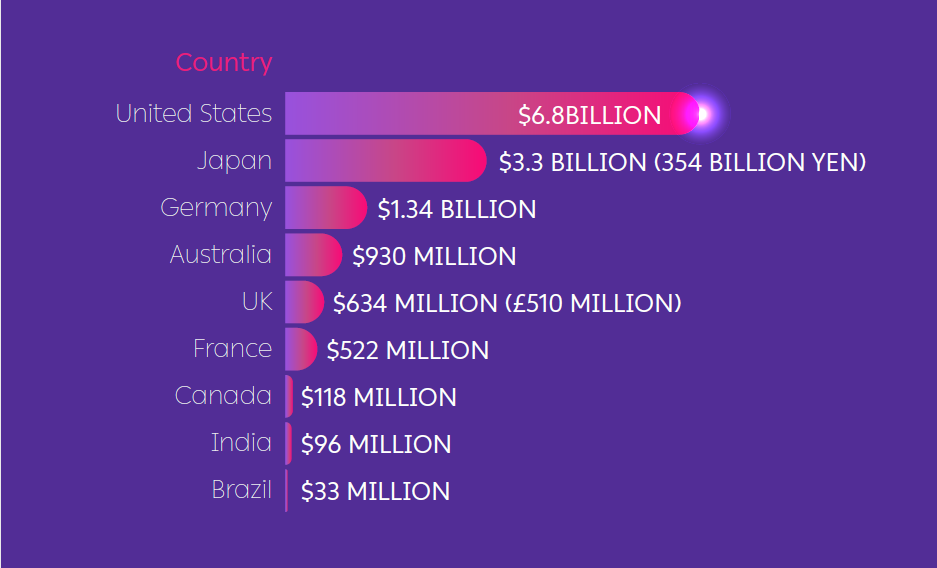
In focus: The US, Japan, Germany, Australia, UK, France, Canada, India, Brazil
The size of the affiliate marketing industry continues to grow, and in 2020, it is a market we estimate to be worth $15 billion globally, according to a study by CHEQ and the University of Baltimore.
This is the breakdown of the size of affiliate marketing sectors across nine major countries in 2020, based on the independent study. In the following post, we look at the growth of affiliate marketing across these nine largest markets for affiliate marketing, looking at the opportunities and challenges for the continued growth of this vital marketing channel.
United States: $6.8 billion
The largest affiliate marketing country is the United States, at $6.8 billion. Some of the biggest affiliate networks are homegrown Amazon Associates and eBay. For Amazon, 6% of its hefty 2.5 billion online visits a month arrive from affiliates. On the earning side, high-profile affiliate earners include Pat Flynn of San Diego-based Smart Passive Income, who made over $100,000 in a single month, and Zach Johnson, who earns over $100,000 every year. In the world of sports gambling, Shahbazyan generates 25-40% lifetime commissions on net gaming revenues generated by referrals, creating $2 million per year. The affiliate website—The Wirecutter—made an estimated $10 million in revenue and was eventually sold to the New York Times for $30 million.
Japan: $3.3 billion
Japan sees $3.3 billion in affiliate marketing, with the domestic market growing 15% each year. Japan has a population of around 126 million people with a high internet penetration of 91%. Keiko Tsuboi, account manager at affiliate agency Acceleration Partners, says: “Although the Asia-Pacific region has been slower to adopt affiliate marketing than the US and Europe, brands and partners are quickly embracing the pay-on-performance model, and the region offers western brands an exciting expansion opportunity.”
Germany: $1.34 billion
Germany is the fifth largest consumer market globally, and brands have been harnessing the power of partnerships. Germany’s retail trade association, Handelsverband Deutschland (HDE), describes mobile commerce sales as vital to Germany’s growth in affiliate marketing.
Australia: $930 million
In Australia, $930 million is spent on affiliate marketing – 10% of the country’s $9.3 billion annual digital marketing spend. According to an IAB study of 70 marketers, almost all brands engaged with affiliate marketing use Cost Per Action (99%), a minority use Cost per click (19%), cost per lead (16%), and cost per thousand, known as CP (used by 14% of brands). For over half of Affiliate Marketers, the Affiliate channel drove 20% or more in new customer sales.
United Kingdom: $634 million
In the UK, $634 million (£510 million) has been poured into affiliate marketing programs. According to the IAB UK, retail and Telco sectors lead the way, driving respectively 43% and 24% of total sales, followed by Travel and Leisure (16%) and Finance (11%). Using a price comparison site is the most common affiliate activity.
France: $522 million
France’s affiliate marketing spend represents around 9% of the country’s digital marketing spend. French insurance and banking sectors have embraced affiliate marketing. These sectors are now fueling double-digit growth in the size of the French affiliate market, according to Guillaume Gélis of InfoPro Digital. He says: “Compared to some other countries, affiliate marketing in France still has a lot of potential for further investment and growth.”
Canada: $118 million
Sarah Bundy, who has been in the affiliate and performance marketing industry since 2004, says: “Canada is the next big opportunity for US-based affiliate marketing programs. Merchants and marketing companies have done such a good job advertising their brands that the US marketplace has become somewhat saturated and margins cut to a bare minimum.” This has led to an incredible opportunity for Canadian-based distribution companies, affiliates, and merchants.
India: $96 million
In India, Flipkart is a bigger online retailer than Amazon and also runs a powerful affiliate program in India that is a large source of affiliate spend. Flipkart Affiliate Marketing commission ranges from 1%-15% of the product’s price. Neha Kulwal, country manager of affiliate agency Admitad India, says: “Players in the travel and tourism industry have been amongst the earliest adopters of affiliate marketing within the Indian e-commerce space. Affiliate campaigns featuring coupons and cashback have been leveraged to promote early booking offers for quite a while now. Price comparison also remains a perennial favorite amongst travel brands to attract prospective consumers during peak travel seasons.”
Brazil: $33 million
Affiliate marketing makes up a small share of the country’s annual $3.3 billion digital advertising spend. Julien Turri founded the Brazilian affiliate agency Afilio in 2008. He says: “There’s 200-million people in Brazil. On desktop, we have about 100-120 million people connected. On mobile, smartphone usage is already at 50-60 million and growing about 40-50% a year. When we look at that in three years, the number of internet users in the region will have grown a lot, especially on mobile, where the data plans are getting subsidized, and people are going straight to mobile for internet.”
The challenge of fraud
Though the spend on affiliate marketing is welcome across all these countries, the CHEQ report also found that $1.4 billion of this marketing spend is set to be lost to affiliate fraud, spread across global affiliate programs. This is known as the dark side of affiliate marketing. Bad actors exploit shortcomings in tracking and attribution to claim online commissions unfairly, damaging both the digital advertising metrics and, ultimately, the bottom line in online advertising campaigns.
In fact, daily affiliate fraud occurs on a daily basis, with campaigns across these countries, as shown on our click fraud prevention platform CHEQ For PPC, which shows anything from 10-15% fraud involving affiliate partners sending bot traffic or faking attribution through methods such as cookie stuffing, attribution fraud, typosquatting, and loyalty software fake attribution.
Protecting campaigns through click fraud software such as CHEQ for PPC prevents such fraud from hurting your bottom line. Left unchecked, the problem of affiliate fraud will continue to grow with the global expansion of affiliate marketing into new markets and countries.
To protect your campaigns against invalid clicks, including affiliate fraud, check out CHEQ, which is the only solution that blocks invalid clicks across major PPC channels from Google to Facebook, LinkedIn, Instagram, Twitter, Bing, Pinterest, and more. The cybersecurity-driven solution blocks fraudulent and non-human users from clicking on ads, saving clients 10-15% of their ad spend, which is lost to invalid clicks.
P.S.
Want to protect your sites and ads? Click here to Request a Demo.
